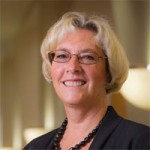This article is more than 5 years old.
I went to the Charleston Conference last week for the first time in several years. It started as a small conference for “Issues in Book and Serial Acquisition,” but its scope has broadened over the years and now almost 2,000 participants enjoy the talks by both librarians and vendors in the lovely city of Charleston.
Bill and I were both speakers this year so we arrived Tuesday evening in time for a barbecue sponsored by Mitchell Davis of BiblioLabs. ZSR is one of the newest library contributors to BiblioLabs (thank you, Chelcie) so they were glad to see us. On Wednesday morning, Bill spoke on a panel in the Self-Pub pre-conference, along with a number of former colleagues, including Mark Sandler from the CIC and Bob Holley from Wayne State.
Self publishing is moving away from its former stigma as vanity press and toward an image of efficient DIY technology. While an estimated 43% of books published today are self-published, they are largely invisible to libraries since libraries typically rely on aggregators for acquisition and there are few aggregators for self-published works. Once a library does find material it wants to add to its collection, issues of metadata, acquisition and preservation are not easy, as our team of ZSR experts can attest when it came time to add material from our own Digital Publishing platform at WFU. The panelists agreed that we all need to figure this out since the phenomenon will keep growing rapidly.
On Thursday, I gave my presentation “A MOOC of our Own” in the plenary session called “If the University is in the Computer, Where does that Leave the Library? MOOCs Discovered.” The session was organized by Meg White of Rittenhouse, who turns out to be a Wake Forest alum! Meredith Schwartz, senior editor of Library Journal, started out by giving a history/overview of the MOOC movement. Then I gave our ZSRx example of “MOOCs in action” and Rick Anderson of University of Utah concluded by giving observations on the future of MOOCs in higher education. I was excited to learn that Library Journal will publish a written version of my presentation in the December issue.
I went to a number of the million or so sessions that took place during the conference. Carol and Ellen were also there, so they will no doubt write up the sessions they attended. A few stood out for me including a very informative panel on streaming video in libraries. We are struggling with this problem ourselves, so it was instructive to see how other libraries are coping. Most had invested in commercial solutions, I was not happy to hear. The Library Publishing Coalition offered a panel of deans saying why they thought it important to invest in library publishing activities. Some focused on journals, others on both monographs and journals. It made me feel like we are doing the right thing with our own digital publishing efforts. A panel of Provosts offered interesting perspectives on their view of libraries. I thought the Provost from Stetson was particularly insightful on how libraries can be leaders and change agents on campus. ASERL sponsored a reception Thursday night just before the all-conference party at the Aquarium, so it was good to touch base with those peeps. All in all, a very enjoyable and productive conference.


1 Comment on ‘Charleston Conference with Lynn’
“…libraries can be leaders and change agents on campus”, I like that!